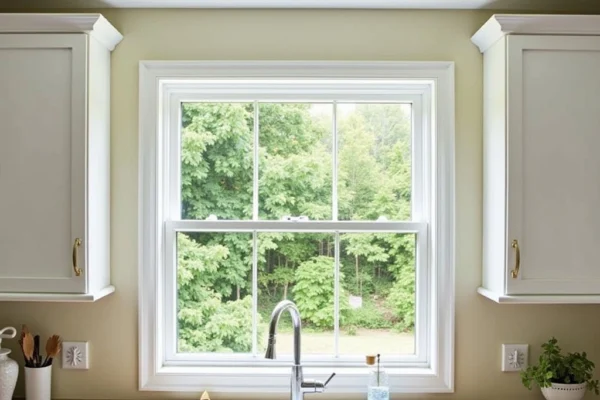How to get homeowners insurance to pay for new windows

Expert tips on understanding insurance policies, documenting window damage, filing claims, negotiating with your insurance company, and hiring a reputable window contractor. Get the best coverage and service.Are you struggling to get your homeowners insurance to cover the cost of new windows? You’re not alone. Many homeowners find it challenging to navigate the process of filing a claim and negotiating with their insurance company to get the coverage they need. In this comprehensive guide, we will walk you through the essential steps to help you understand your insurance policy, document window damage and loss, file a claim with your insurance, negotiate with the insurance company, and finally, hire a reputable window contractor. By following these steps, you can increase your chances of getting the coverage you deserve and getting those new windows installed without breaking the bank. Let’s dive in and take the confusion out of the insurance claims process so you can enjoy the benefits of having your new windows covered by your homeowners insurance.
- How to get homeowners insurance to pay for new windows
- Understanding your insurance policy
- Documenting window damage and loss
- Filing a claim with your insurance
- Negotiating with the insurance company
- Hiring a reputable window contractor
- Frequently Asked Questions
Understanding your insurance policy
When it comes to your homeowner’s insurance, it’s crucial to thoroughly understand your policy to ensure that you are adequately covered in the event of window damage or loss. Your policy should outline what is and isn’t covered, as well as any limits and deductibles that may apply. Take the time to carefully review your policy and make note of any specific provisions related to window coverage.
One important aspect to consider is whether your policy covers damage caused by specific events, such as natural disasters or accidents. Additionally, it’s important to know if your policy includes replacement cost coverage for your windows, which would provide funds to replace your windows with new ones of similar quality, without factoring in depreciation.
Lastly, be sure to familiarize yourself with the claims process outlined in your policy. Understanding the steps you need to take and the documentation required to file a claim for window damage or loss can help you navigate the process more efficiently when the need arises.
Documenting window damage and loss
When it comes to filing a claim with your homeowners insurance for window damage or loss, proper documentation is key to ensuring that your claim is approved. Whether your windows were damaged in a storm, by vandalism, or through regular wear and tear, taking the time to document the damage will help make the claims process go more smoothly.
One way to document window damage is by taking detailed photographs of the affected windows. Be sure to capture the damage from multiple angles and distances, as well as any surrounding structural damage. In addition to photographs, it can be helpful to create a written description of the damage, including the date it occurred and any relevant details.
Another important aspect of documenting window damage and loss is keeping all relevant paperwork and receipts. This includes any estimates or invoices from window repair or replacement companies, as well as any communications with your insurance company. By keeping thorough records, you can provide evidence of the damage and the associated costs, which can help support your insurance claim.
| Documentation Checklist |
|---|
| Photographs of damaged windows |
| Written description of damage |
| Estimates and invoices for repairs |
| Communications with insurance company |
Filing a claim with your insurance
When it comes to filing a claim with your insurance company for window damage or loss, it’s important to be thorough and organized. Start by reviewing your homeowners insurance policy to understand what is covered and what is not. Take note of any deductibles or limits that may apply to window replacement. Once you have a clear understanding of your policy, document the damage to your windows with photos and written descriptions. This evidence will be crucial when filing your claim.
After documenting the damage, contact your insurance company to file a claim. Be prepared to provide all the necessary information, including the date and cause of the damage, the extent of the damage, and any relevant documentation, such as repair estimates or receipts for temporary repairs. Be honest and accurate in your communication with the insurance company, as providing false information can lead to claim denial or even legal consequences.
Once your claim is submitted, be proactive in following up with your insurance company. Keep a record of all communication and documentation related to your claim, and make sure to respond promptly to any requests for additional information. If your claim is approved, review the settlement offer carefully to ensure that it adequately covers the cost of window replacement, including materials, labor, and any associated expenses. If the offer is insufficient, be prepared to negotiate with the insurance company to get the coverage you need.
| Steps to File a Claim with Your Insurance |
|---|
|
Negotiating with the insurance company
When it comes to negotiating with the insurance company, it’s important to be well-prepared and knowledgeable about your policy coverage. Start by reviewing your insurance policy to understand the terms and conditions related to window damage and replacement. Take note of any exclusions or limitations that may apply to your situation.
Next, document the extent of the window damage and the resulting loss. Take photographs and keep detailed records of any estimates or quotes you receive for window replacement. This information will be crucial during negotiations with the insurance company to support your claim for coverage.
Once you have gathered all the necessary documentation, it’s time to file a claim with your insurance company. Provide them with all the evidence and quotes you have collected to support your case. Be persistent and assertive in your communication with the insurance adjuster, and be prepared to negotiate for the best possible settlement.
Hiring a reputable window contractor
When it comes to hiring a window contractor for your home, it’s important to do your research and find a reputable professional who will get the job done right. One of the best ways to find a trustworthy contractor is to ask for recommendations from friends, family, or neighbors who have had similar work done. Getting personal referrals can give you peace of mind knowing that someone you trust had a positive experience with a particular contractor.
Another important step in hiring a window contractor is to check their credentials and experience. Make sure they are properly licensed and insured, and ask about their experience with the specific type of work you need done. A reputable contractor should be able to provide references from past clients, as well as examples of their previous work.
Lastly, it’s crucial to get everything in writing before hiring a window contractor. This includes a detailed contract outlining the scope of work, timeline, and payment terms. By having everything in writing, you can protect yourself and ensure that both parties are on the same page.
| Questions to Ask a Potential Window Contractor: |
|---|
| Are you licensed and insured? |
| Can you provide references from past clients? |
| What is the timeline for the project? |
| What are the payment terms? |
Frequently Asked Questions
Why won’t my homeowners insurance pay for my new windows?
Homeowners insurance typically covers damage to windows caused by covered perils, such as storms, vandalism, or accidents. It may not cover normal wear and tear or cosmetic damage.
What steps can I take to get my homeowners insurance to pay for new windows?
Document the damage, gather evidence of the cause, and file a claim with your insurance company. Provide thorough documentation and evidence to support your claim.
What are some common reasons for homeowners insurance to deny a claim for new windows?
Some common reasons for denial include lack of coverage for the cause of damage, insufficient evidence, or failure to maintain the windows properly.
Will my homeowners insurance cover the full cost of new windows?
Coverage limits and deductibles will affect the amount your insurance company will pay. You may be responsible for a portion of the cost.
Are there any specific types of windows that homeowners insurance is more likely to cover?
Standard windows that are damaged by covered perils are typically eligible for coverage. Special features, upgrades, or cosmetic damage may not be covered.
Should I repair or replace my damaged windows before filing a homeowners insurance claim?
It’s important to consult with your insurance company before making any repairs or replacements. They may have specific guidelines or recommendations for handling the damage.
What can I do if my homeowners insurance denies my claim for new windows?
You can appeal the denial, provide additional evidence or documentation, or seek assistance from a public adjuster or legal professional to advocate for your claim.






